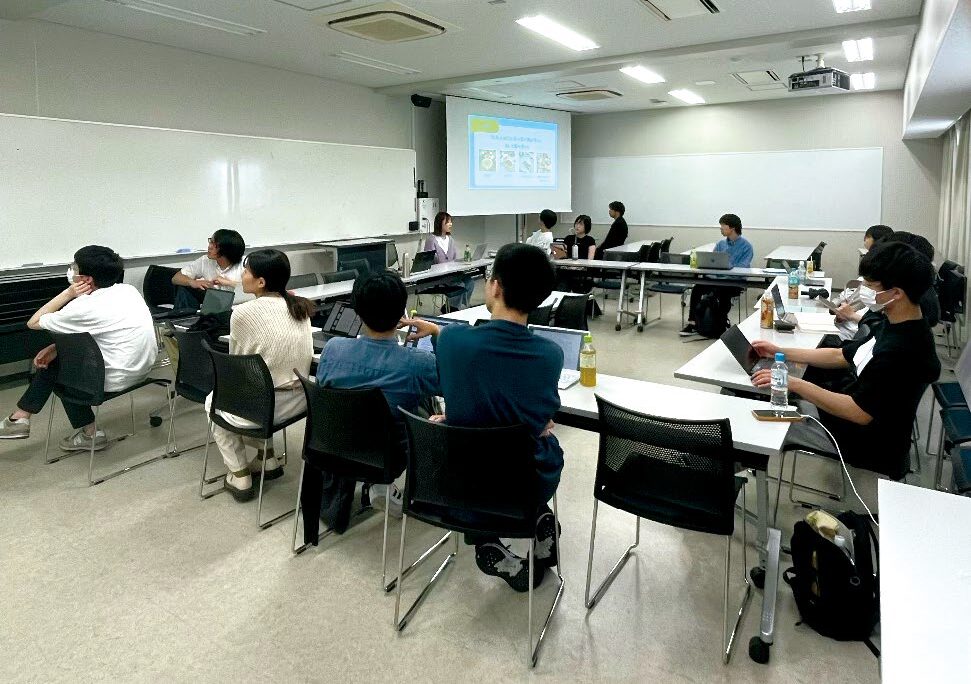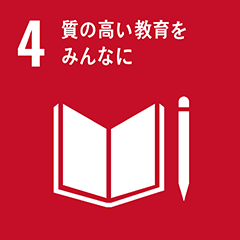Inochi Declaration
Create a society where the voices of children are respected, where they can engage in democratic dialogue—among themselves and with adults—and where we foster the next generation of adults capable of sustaining such a society.
The Basic Act on Children, which came into effect in April 2023, outlines six foundational principles for future child policy in Japan. One of these states that “every child shall have their opinions respected according to their age and stage of development, and that what is best for the child in the present and future shall be prioritized.”*1 To realize this principle, it is vital to create environments in which children, regardless of age, gender, or nationality, can safely express their views in public spaces to improve their lives and the society they live in. Moreover, it is crucial that such expressions spark constructive dialogue among all members of society.
In response, the Social Solution Initiative (SSI) at The University of Osaka launched the project “Development of Educational Curricula and Programs for Next-generation citizens who can co-create public knowledge based on their own life experiences” (Project Lead: Prof. Mika Okabe, Graduate School of Human Sciences). This initiative aims to conceptualize and build a participatory society that includes children and other citizens. A central goal is to facilitate democratic dialogue between children and adults, while also encouraging children to engage in conversations among themselves. Through these dialogues, the project challenges outdated and increasingly obsolete social categories—adult / child, male / female, expert / layperson, Western / non-Western, normal / abnormal—as well as systemic divisions such as those in administration, law, academic disciplines, education systems, and public-private boundaries. The project promotes both theoretical and practical approaches to redrawing, transcending, or even dissolving these societal boundaries.
In 2022, the project supported night junior high school students in expressing their perspectives to both domestic and international audiences. In 2023, junior high and high school students from across Japan articulated their visions, concerns, and hopes for future society.

Undergraduate and postgraduate students engaged in discussion

High school students engaged in debate and the postgraduate students supporting them
From 2024 onward, two key initiatives are being implemented annually. These initiatives encourage high school, university, and graduate students to critically re-examine the SDGs within the framework of inquiry-based learning. The students identify critical, reflective questions—rather than fact-based questions with fixed answers—using the SDGs as a lens to challenge taken-for-granted assumptions in contemporary society. By reviewing the pre-history and socio-political background of the SDGs, students develop meaningful “Inochi Voices,” which articulate their ideas and commitments for shaping a sustainable future. These voices are shared with relevant social institutions and actors as concrete proposals. Dialogue sessions are then organized between children and adults based on the “Inochi Voices” generated, helping nurture young people who can engage in social and political commitments and foster adults capable of supporting the civic agency of children.
Looking ahead, the project plans to deepen university students’ engagement through a critical reading of philosophical texts on “inquiry,” particularly those of American philosopher John Dewey (1859–1952), who emphasized the significance of reflective learning.
Building on this foundation, students will explore the historical and social contexts that gave rise to the SDGs, questioning the assumptions underlying current targets. By identifying reflective questions and conducting literature reviews, students will refine their inquiries, develop “Inochi Voices”, and act on them by engaging with relevant social institutions. This process serves as a starting point for civic and political engagement. As part of a parallel initiative, graduate and undergraduate students will support high school students in conducting inquiry-based explorations of the SDGs, through an intensive three-day seminar.
The Inochi Forum supports such projects with the goal of building a society where children’s opinions are valued and democratic dialogue across generations is made possible.
[Notes]
*1 Children and Families Agency: The Basic Act on Children
https://www.cfa.go.jp/policies/kodomo-kihon
[References]
・The University of Osaka SSI Core Project: Development of Educational Curricula and Programs for Next-generation citizens who can co-create public knowledge based on their own life experiences
・Japan-OECD Symposium 2022
https://www.ssi.osaka-u.ac.jp/activity/other/japanoecd-2022082728/
・5th SSI Symposium Report
https://www.ssi.osaka-u.ac.jp/activity/salon/5thssisymposium-2/?sortcat=cat01
[Action Platform]
Education and Children
[SDGs]


